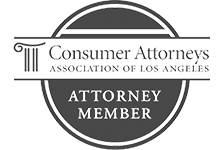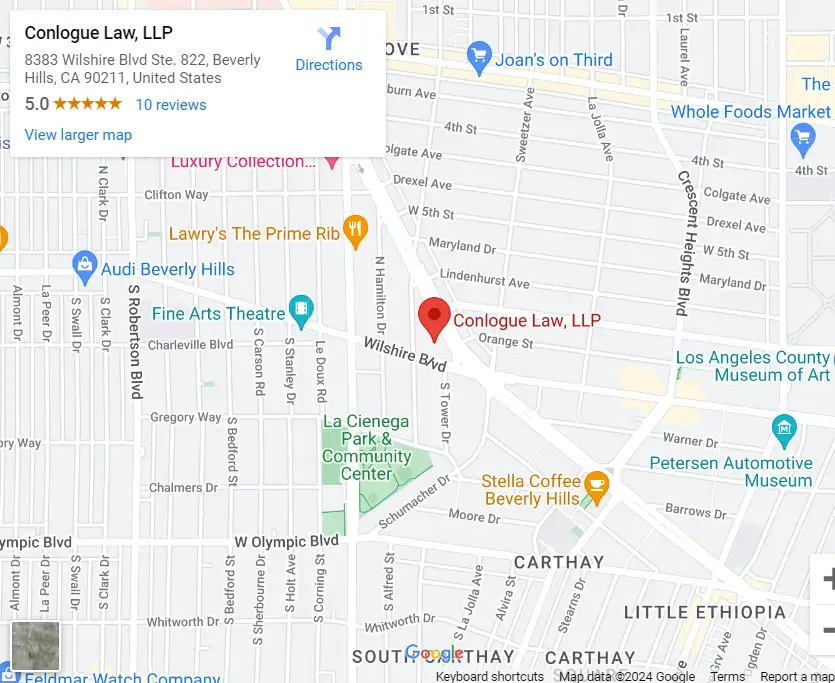Workplace Fairness Isn’t Optional in California
Disability discrimination still shows up in California workplaces more often than it should. Some employers ignore the law, while others rely on the hope that their workers won’t push back. If you’ve been mistreated at work because of a disability, an ADA compliance lawyer in Beverly Hills can help you know your rights and take action.
California law is clear: workers with physical or mental disabilities have strong legal protections. Employers can’t fire you, demote you, or deny you a job just because you have a disability. And they must offer reasonable workplace accommodations that let you do your job effectively and safely.
This article will explain what qualifies as disability discrimination, what your employer must legally do, and how the law protects you. You’ll also know how to recognize when your rights are being violated—and what steps you can take if they are.
Key Takeaways:
- Many conditions are considered disabilities under California law—even more than federal law. While the ADA covers serious physical or mental impairments, California’s FEHA includes any condition that limits major life activities, even if the impact is not severe. This means more workers are protected. Disabilities can consist of physical, mental, and temporary conditions. If your health affects your ability to work, the law may protect you.
- Employers in California must not discriminate against workers with disabilities and must provide reasonable accommodations. This can mean adjusting schedules, changing job duties, or modifying the workspace. They also have to engage in an open discussion with you about what support you need. Ignoring or delaying this process is unfair and against the law. Retaliating for speaking up about your rights is illegal, too.
- If you’re being mistreated at work because of a disability, it may be discrimination—even if it’s subtle. Signs can include being left out, punished unfairly, or denied opportunities after disclosing your condition. A lawyer can help you comprehend your rights and guide you through filing a complaint or lawsuit. California laws offer strong protections; you don’t have to stay silent when those protections are violated.
What Qualifies as a Disability Under California and Federal Law
Not all health conditions are considered disabilities under the law. However, many are, and California law is more protective than federal law.
Under the Americans with Disabilities Act (ADA), a disability is a physical or mental impairment substantially limiting one or more major life activities. These activities include walking, seeing, hearing, thinking, and working.
California’s Fair Employment and Housing Act (FEHA) uses a broader definition. It covers any condition that limits a major life activity—even if the impact isn’t “substantial.” That one word makes a big difference. This means more people qualify for protection under California law than the ADA.
Common Examples of Covered Disabilities:
- Chronic conditions like diabetes, epilepsy, and multiple sclerosis
- Mental health conditions such as depression, anxiety, or PTSD
- Learning disabilities, ADHD, or other cognitive disorders
- Mobility issues, including the use of wheelchairs or assistive devices
- Serious illnesses, including cancer or HIV
Temporary conditions can also be covered, depending on how they affect your ability to function.
You don’t need to be visibly disabled. You don’t need to “prove” you’re struggling. What matters is whether your condition affects a major part of daily life. That’s what triggers your legal protections in the workplace.
And those protections? They don’t just apply to hiring and firing. They impact everything from promotions to work schedules to job duties—which we’ll cover next.
Employer Responsibilities Under the Law
When an employer becomes aware that an employee has a disability, they have legal responsibilities. Under both the ADA and California’s Fair Employment and Housing Act (FEHA), they’re required to take clear steps—not just avoid outright discrimination.
Here’s what the law expects:
- No discrimination – Employers cannot mistreat you in hiring, pay, job assignments, promotions, or termination because of your disability.
- Offer reasonable workplace accommodations – They must make adjustments that allow you to perform your job unless doing so would cause significant difficulty or expense.
California law adds another layer: employers must start an interactive process with you. That means they’re expected to have an honest, ongoing conversation about what changes could help you do your job. This process has to be active and timely—stalling or silence from the employer can count as noncompliance.
And let’s be clear—asking for accommodations or standing up for your rights shouldn’t come with consequences. If your employer retaliates against you, that’s illegal. These protections are in place to make sure you’re treated fairly and given a real chance to succeed at work.
Reasonable Workplace Accommodations: What Employees Can Expect
If you have a disability, you’re not asking for special treatment—you’re asking for a fair shot. That’s what reasonable workplace accommodations are all about. They’re changes to your job or work environment that help you perform your duties without being disadvantaged.
Accommodations can take many forms:
- Modified work schedules
- Remote work or hybrid arrangements
- Extra breaks or rest periods
- Physical changes to the workspace (ramps, ergonomic chairs, etc.)
- Assistive technology or equipment
- Reassignment to an open position if you can’t perform your current job
To get accommodations, you don’t need to fill out a mountain of paperwork. You just need to let your employer know you have a medical condition affecting your work ability. This will start the interactive process, a two-way discussion about what would help and whether it’s reasonable.
What’s not okay? An employer may ignore your request, drag their feet, or flat-out refuse without a valid reason. If they claim something is “too expensive” or “too difficult,” they must be able to prove it. And they can’t use that as an excuse to push you out of your job.
How to Identify Disability Discrimination at Work
Disability discrimination isn’t always loud or obvious. Sometimes, it’s subtle—a shift in how you’re treated after disclosing a condition. Or a pattern of being passed over, excluded, or micromanaged. The signs are there—you just need to know what to look for.
Here are some red flags:
- You’re denied a job, promotion, or training opportunity after disclosing your disability.
- Your employer ignores your request for accommodations.
- You’re suddenly written up or disciplined for things that were never a problem before.
- Coworkers or supervisors make negative comments about your condition.
- You’re isolated from team meetings or left out of workplace communication.
Discrimination can also show up as retaliation. Maybe you asked for accommodations or filed a complaint, and now your hours are cut, you’re reassigned to worse tasks, or your boss has started documenting everything you do. That kind of pushback is illegal.
If you’ve experienced any of this, it’s not just bad behavior. It may be a violation of both federal and California law. It’s a sign that your rights as a worker with a disability aren’t being respected.
The Role of an ADA Compliance Lawyer in Beverly Hills
When your employer doesn’t follow the law, you shouldn’t have to figure it out alone. An ADA compliance lawyer in Beverly Hills can help you make sense of what’s happening and what steps to take next. They know how these cases work—and, more importantly, how California law protects you.
A lawyer can step in at any stage:
- If you’re unsure whether your rights have been violated
- If your employer refuses to provide accommodations
- If you’re facing retaliation or a hostile work environment
They can help document your case, communicate with your employer, and file formal complaints. If necessary, they can also represent you in legal action—whether a claim with the Civil Rights Department (CRD) or a lawsuit in court.
Having someone in your corner makes a difference. Especially when that someone comprehends state and federal disability laws—and how to hold California employers accountable when they don’t follow them.
Filing a Complaint or Taking Legal Action in California
If your employer crosses the line, you have legal options. California makes it possible to file a complaint—even without a lawyer. But having legal support can help you avoid mistakes and protect your case from the start.
Here’s how the process typically works:
- Start internally – If possible, report the issue to HR or a supervisor. Keep records of what was said and when.
- File a complaint – You can file a complaint with the California Civil Rights Department (CRD) or the U.S. Equal Employment Opportunity Commission (EEOC). Both agencies can investigate claims of disability discrimination.
- Get a Right-to-Sue notice – After the investigation, you may receive a notice allowing you to proceed with a lawsuit in court.
- Take legal action – This is where having a lawyer helps. They can build your case, represent you in negotiations, or take it to trial if needed.
Deadlines matter. Under FEHA, you usually have three years from the incident date to file a complaint with the California Civil Rights Department (CRD). It’s smart to act sooner rather than later and keep copies of emails, performance reviews, medical documents, and any written requests for accommodations.
You don’t have to let things slide just because they’re uncomfortable. California law gives you a clear path to hold your employer accountable when they break the rules.
Why California Has Some of the Strongest Legal Protections
Regarding disability rights at work, California goes further than federal law. The Fair Employment and Housing Act (FEHA) offers broader protections than the Americans with Disabilities Act (ADA)—and that’s a big deal for workers.
The ADA requires that a disability “substantially limits” a major life activity. FEHA drops the word “substantially,” making it easier for more people to qualify for protection. That small shift means California recognizes a wider range of disabilities, including conditions that may not qualify under federal law.
California also makes it harder for employers to dodge their responsibilities. The interactive process isn’t just suggested—it’s required. If an employer fails to engage in it, that alone can be grounds for legal action. The law here focuses on what’s fair and reasonable, not just what’s technically legal.
In short, California doesn’t just copy the ADA—it strengthens it. That’s good news for employees who need accommodations, support, or legal backup when their rights are ignored.
How Conlogue Law LLP Can Help Protect Your Rights
When your rights are being ignored—at work or anywhere else—you need someone in your corner who’s ready to act. At Conlogue Law LLP, we represent people facing disability discrimination, workplace retaliation, and civil rights violations like excessive force, unlawful searches, and police misconduct. If your employer has refused accommodations or mistreated you because of a disability, we can help you fight back and seek justice.
Our work also extends beyond employment cases. We take on serious personal injury claims and trial matters, bringing the same focus and determination to every case. Whether you’ve been hurt by negligence, targeted by law enforcement, or pushed out of your job for asserting your rights, we’re ready to help.
If you’re searching for an ADA compliance lawyer in Beverly Hills who knows California law and the real-world challenges clients face, contact Conlogue Law LLP. We’re here to talk, listen, and act.








